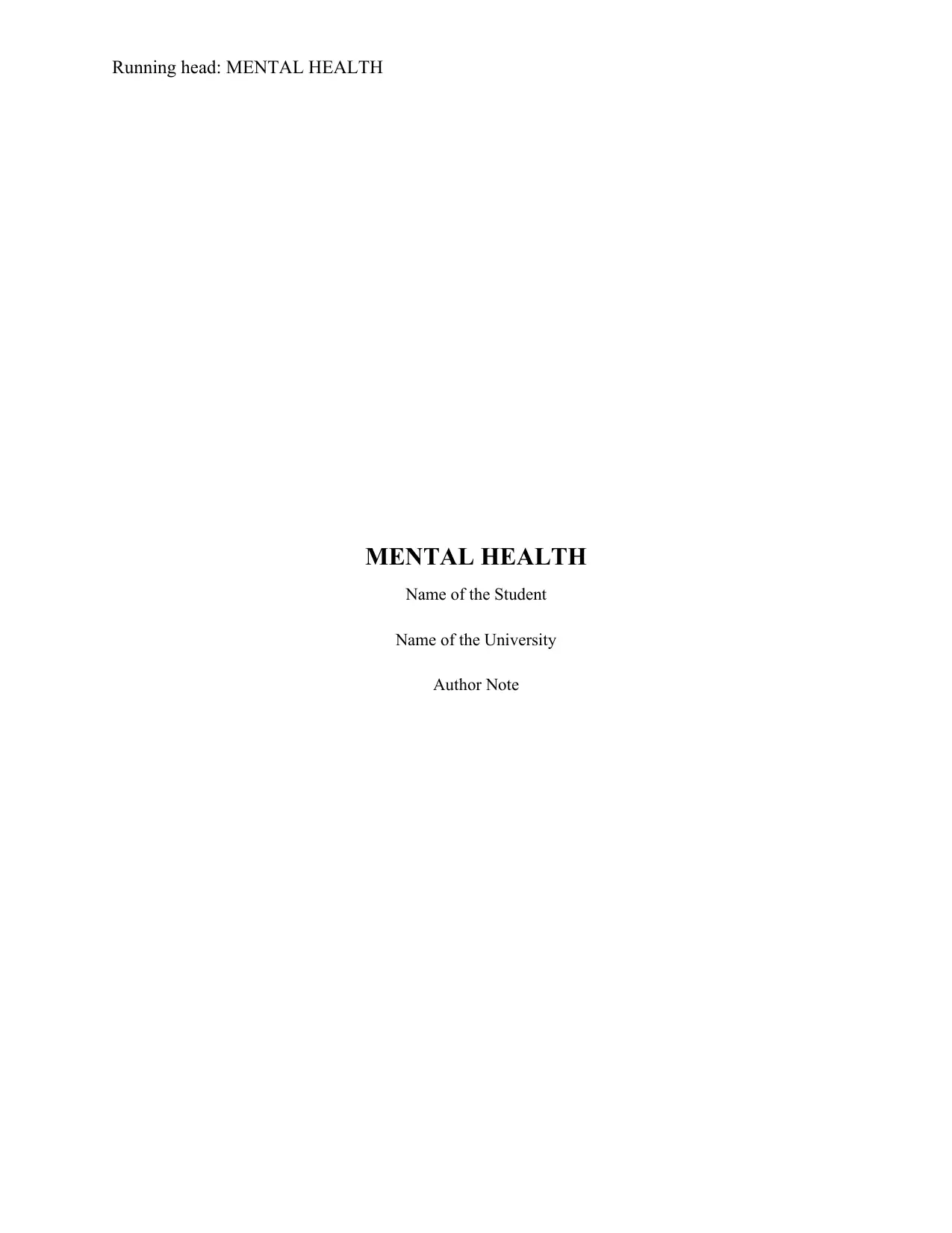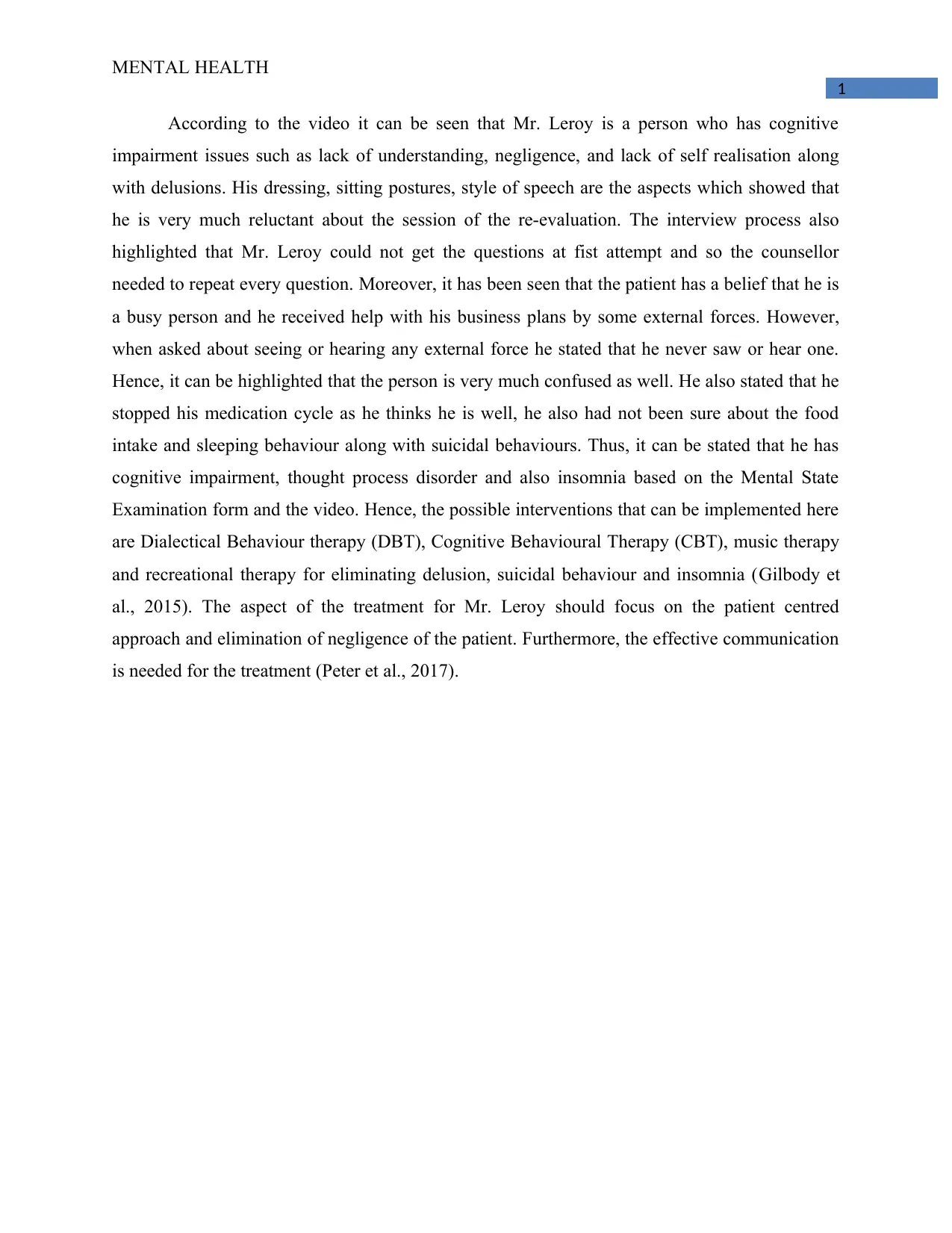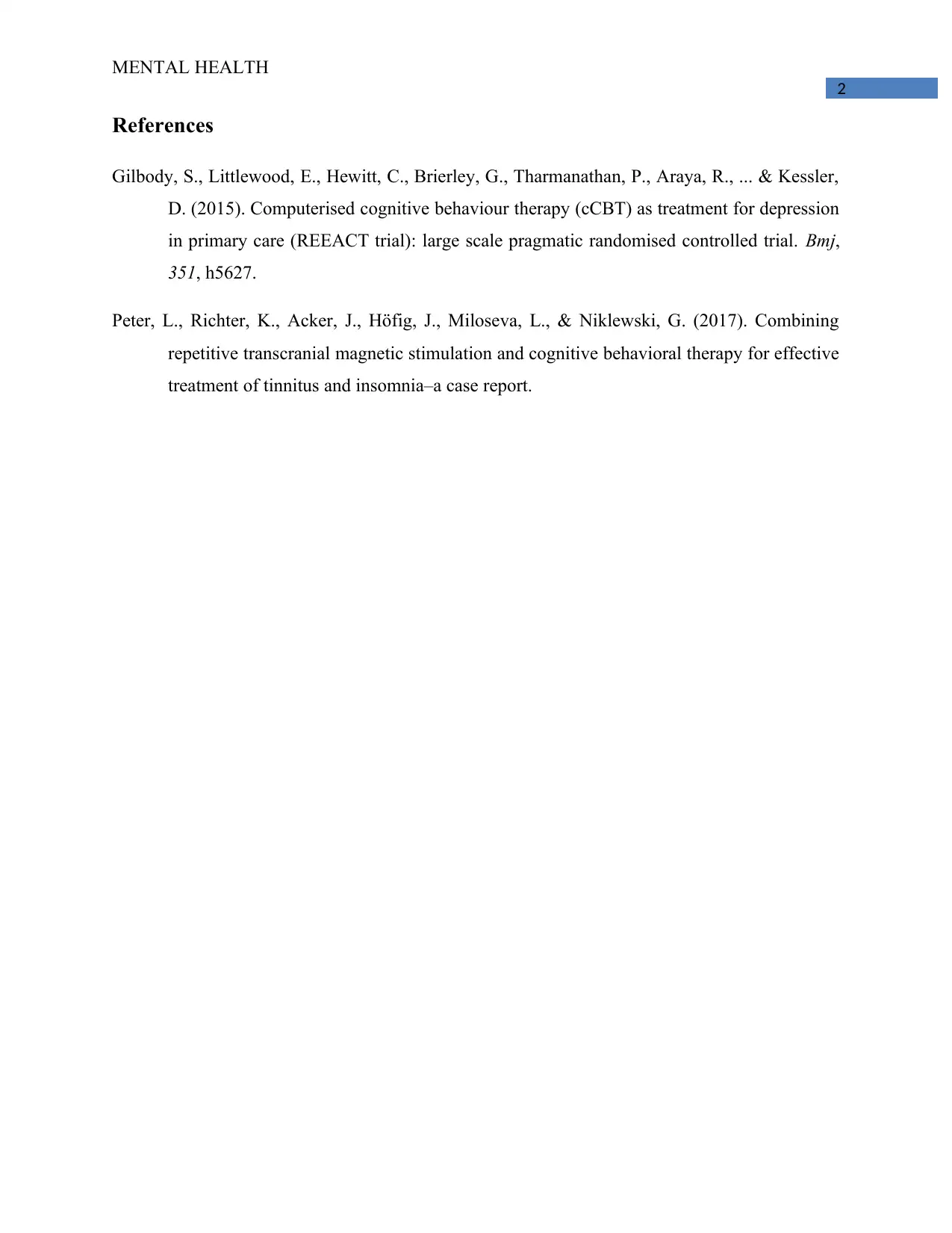University Mental State Examination Assessment Analysis - NUR2200
VerifiedAdded on 2022/10/11
|3
|440
|15
Practical Assignment
AI Summary
This assignment presents an analysis of a Mental State Examination (MSE) based on a provided case study of Mr. Leroy, a 35-year-old male exhibiting symptoms of cognitive impairment, thought process disorder, and insomnia. The analysis, conducted within the context of a NUR2200 course, identifies key observations from the video and patient background, including reluctance towards evaluation, confusion, and potential medication non-adherence. The assessment highlights Mr. Leroy's cognitive deficits, including lack of understanding and delusions. Based on the identified symptoms, the analysis suggests potential interventions such as Dialectical Behaviour Therapy (DBT), Cognitive Behavioural Therapy (CBT), music therapy, and recreational therapy. The focus of the treatment should be patient-centered, addressing the patient's negligence and promoting effective communication. The assignment emphasizes the importance of accurate documentation and patient-focused care within a mental health setting.
1 out of 3










![[object Object]](/_next/static/media/star-bottom.7253800d.svg)